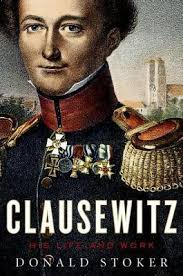On War: A Deep Dive into Clausewitz's Masterpiece
Carl von Clausewitz's On War, though written in the early 19th century, remains a cornerstone of military and strategic thought. This seminal work offers a profound and often paradoxical analysis of war's nature, its complexities, and its relationship to political objectives.
Key Concepts:
- War as an Instrument of Policy: Clausewitz famously defined war as "the continuation of policy by other means." This emphasizes that war is not an end in itself but a tool to achieve political goals. Military strategy must always be subservient to the overarching political objectives.
- The Trinity: Clausewitz introduced the concept of the "trinity" to capture the inherent tensions within war:
- Primordial Violence: The raw, irrational, and emotional aspects of war, driven by hatred, revenge, and the will to overcome the enemy.
- Chance and Probability: The unpredictable and uncontrollable elements of war, influenced by factors like weather, terrain, and unforeseen events.
- Reason: The rational, calculated, and controlled aspect of war, guided by political objectives and strategic planning.
- Friction: Clausewitz recognized the pervasive influence of "friction" in war, encompassing all the unforeseen and unintended complications that inevitably arise in any military operation. These include logistical challenges, communication breakdowns, and the psychological strain on soldiers.
- The Culminating Point: This concept describes the moment in a campaign when an army has reached its maximum effectiveness and is most vulnerable to a decisive counterattack. Understanding the culminating point is crucial for effective strategic planning.
Criticisms and Interpretations:
- Determinism vs. Agency: Some critics argue that Clausewitz's emphasis on the trinity and friction can lead to a deterministic view of war, minimizing the role of human agency and strategic decision-making.
- Absolute War vs. Limited War: The concept of "absolute war," where violence is unrestrained in pursuit of total victory, has been debated extensively. Many argue that modern warfare is inherently limited by political, social, and technological constraints.
- Relevance to Modern Warfare: While some argue that Clausewitz's principles are outdated in the context of modern warfare with its technological advancements and changing political landscapes, others maintain their enduring relevance.
Conclusion:
Clausewitz's On War remains a valuable resource for anyone seeking to understand the complexities of war. Its insights into the nature of conflict, the interplay of political and military factors, and the importance of strategic thinking continue to resonate with military leaders, policymakers, and scholars today.
References:
- Clausewitz, Carl von. On War. Translated by Michael Howard and Peter Paret. Princeton University Press, 1976.
- Bassford, Christopher. Clausewitz in English: The Reception of On War in the Anglophone World. Oxford University Press, 2005.
- Paret, Peter. Clausewitz and the Modern State. Princeton University Press, 1976.
Note: This is a brief overview. On War is a complex and multifaceted work that requires careful study and interpretation.
I hope this expanded white paper provides a valuable introduction to Clausewitz's seminal work.



